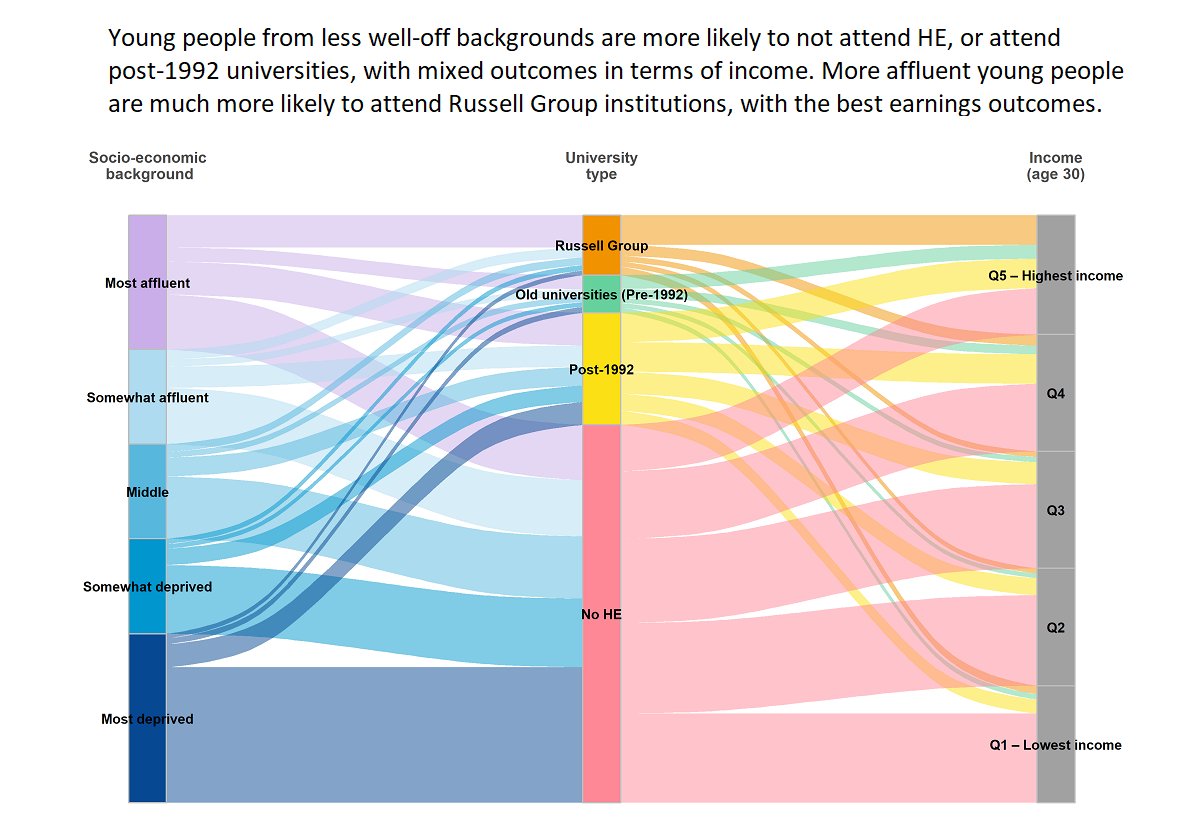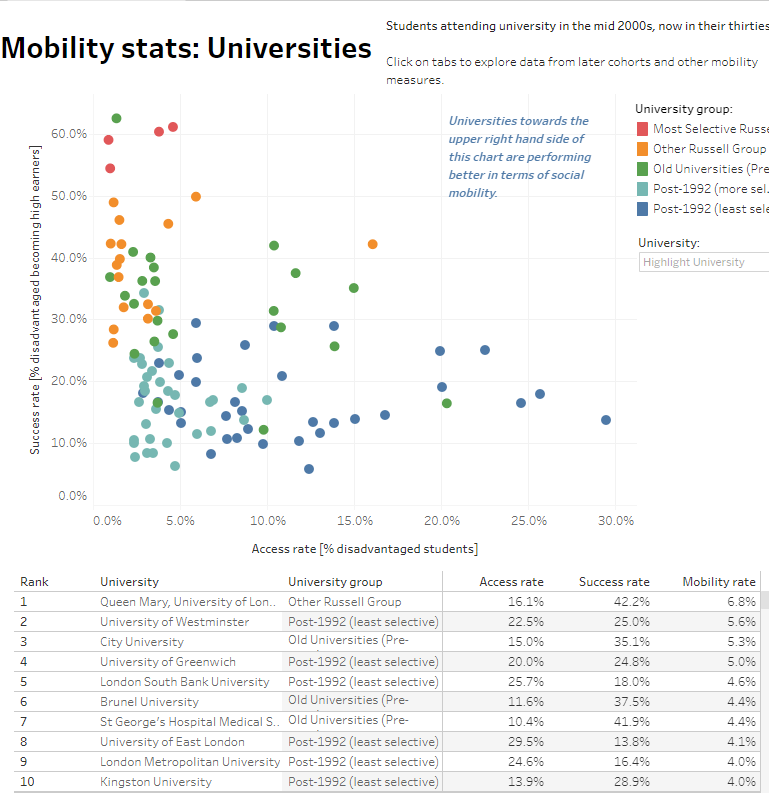
New data published by @TheIFS and @SuttonTrust gives us the clearest picture yet of social mobility and how it is influenced by higher education pathways. A quick walk through some of the most interesting findings: (thread) 

For a start, disadvantaged young people who attended higher education were almost 4 times more likely to count among the top 20% earners at age 30 than those who hadn’t. But gaps to those from wealthier backgrounds remain. 

In fact, within every university grouping, those from lower socio-economic backgrounds (on the left) are less likely to become top earners than more affluent classmates (on the right). 

Universities’ contributions to social mobility were measured in two ways: how many disadvantaged students are admitted (access), and how many of them go on to be socially mobile (success). The two generally have an inverse relationship. 

Not every institution follows this pattern though. Russell Group universities in this chart cluster in the top left. High labour market success, but low levels of access to disadvantaged students. Queen Mary, the top ranked university for social mobility, delivers both. 

Least selective post-1992 universities follow a much different pattern: average or below levels of success, with a wide-range of access rates, including UEL, which has an FSM eligibility rate 2.5 times higher than the school population. 

The group of ‘old universities’ (pre-1992) are a more diverse group. From highly ranked London universities such as City and Brunel, to the high success-low access RVC and the high access-low success University of Bradford. 

More selective post-1992 universities can combine the worst of both worlds: below average levels of labour market success, together with relatively low access rates. In particular, a group of performing arts schools at the bottom left. 

Overall, the top universities are dominated by less selective institutions in & around London. This reflects the higher salaries of those who live in the capital after graduating, as well as high levels of highly attaining pupils from disadvantaged backgrounds in London schools. 

Measuring income after graduation is only one way of looking at the outcomes of higher education, and any ranking is a simplification.
But this research emphasises that we need to broaden how we evaluate universities to include their role in widening opportunities.
But this research emphasises that we need to broaden how we evaluate universities to include their role in widening opportunities.
Many universities seen as having ‘low returns’ are actually contributing strongly to social mobility. University rankings should move away from rewarding institutions simply for their intake, and actively disincentivising those who take on more diverse student bodies.
Thanks to the authors @jack_britton, Elaine Drayton and Laura van der Erve @TheIFS for a landmark piece of research.
Explore the data yourself here: suttontrust.com/universities-a…
Explore the data yourself here: suttontrust.com/universities-a…

Huge credit also to @Erica_HoltWhite and @JamesAYarde for their sterling work on the visualisations.
• • •
Missing some Tweet in this thread? You can try to
force a refresh




